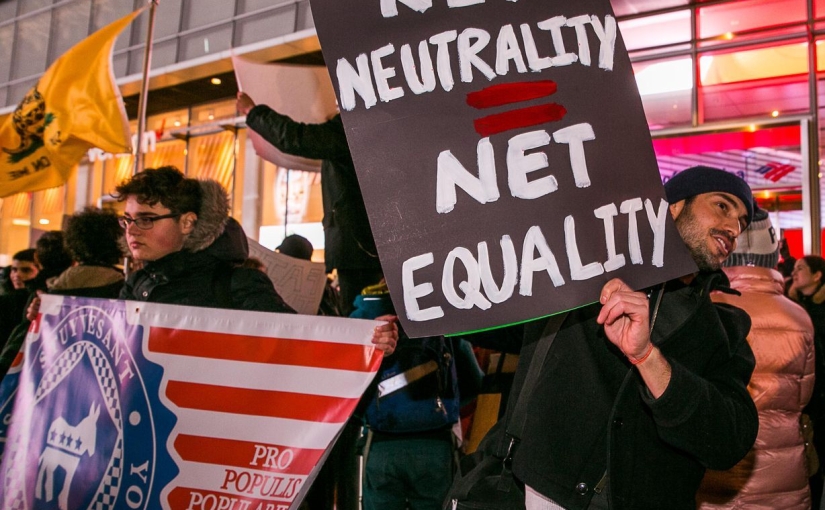By Stan Johnston
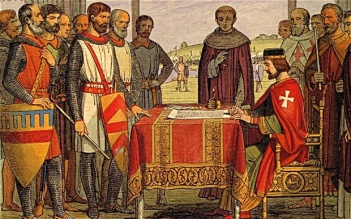 I have long been puzzled by all the fuss over net neutrality, which is set to expire on June 11. Some see it as the defining issue of our time. But the promise of a connected global community goes far beyond my right not to be throttled by an Internet Service Provider (ISP). Could we set the bar any lower? What about the right to access itself? What about data privacy, Internet tools, protection from predators, and connections beyond your country’s borders?
I have long been puzzled by all the fuss over net neutrality, which is set to expire on June 11. Some see it as the defining issue of our time. But the promise of a connected global community goes far beyond my right not to be throttled by an Internet Service Provider (ISP). Could we set the bar any lower? What about the right to access itself? What about data privacy, Internet tools, protection from predators, and connections beyond your country’s borders?
We have regressed to 1215 AD, when the barons of England rebelled against King John and pressured him to sign a document reducing his power over them. Today’s Digital Barons in America have temporarily forced the government to limit its power over how they operate. But the full rights of ordinary citizens are an afterthought, again.
Of the Magna Carta’s 63 clauses, “many concerned the various property rights of barons and other powerful citizens,” says history.com. “The benefits of the charter were for centuries reserved for only the elite classes, while the majority of English citizens still lacked a voice.”
Like the Magna Carta, net neutrality only deals with the rights of barons and kings.
The rights of ordinary citizens in England weren’t addressed for another 400 years. It won’t take that long for broader digital rights to catch up, but law has struggled to keep pace with technology since the First Industrial Revolution.
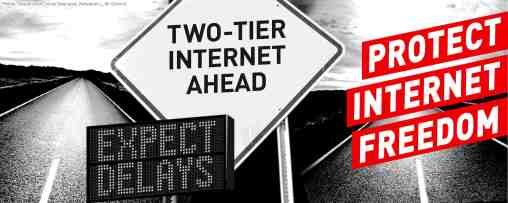
In fact, the legal system itself remains one of the core challenges. National laws vary significantly when it comes to digital rights – and sometimes basic human rights. In addition, most are steeped in a tradition of precedence. That means changes in law come slowly while the rest of the world is accelerating.
Nowhere is that gap more clear than in net neutrality, the principle that governments should force ISPs to treat all data and customers the same. Under net neutrality, Internet providers cannot block content, slow down data, or charge money for specific websites and content. One for all, and all for one.
Problem is, it is not our biggest problem. While I appreciate the passion of net neutrality advocates, I urge you not to settle for the single topic of access quality. First, it is primarily a U.S. perspective that assumes everyone is connected already. Second, it isn’t the most important issue globally or morally.

Many people in the world are denied basic digital rights. To them net neutrality is a peripheral issue. If you don’t have access, never feel safe, or can’t reach customers outside your country, the connection speed is irrelevant. Ordinary citizens of medieval England were less than impressed with the Magna Carta Libertatum (Great Charter of the Liberties) for the same reason – a lot of noise with little real change for most.
Are we at a Magna Carta moment in the Information Age? Net neutrality is an iconic and powerful symbol, but it is not a Bill of Rights. On the other hand, we probably will settle for it. And it will be years before full digital rights for every human can be addressed. Why? Barons and kings continually get distracted by squabbles over power, property, and justice. For example, less than three months after the Magna Carta was signed civil war broke out in England. Who had time to worry about commoners then?
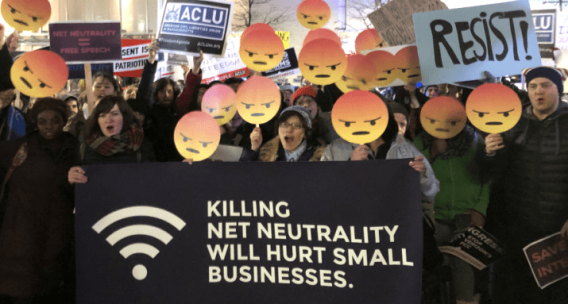
We must think outside the nation-state box and beyond America’s ISPs. An Internet that crosses national boundaries and derives value from pooled virtual resources brings tremendous opportunity for good worldwide. It also requires a new kind of governance that overlays and rises above the competing interests of nations and their baronies. This week’s example of the need:
“A free and open Internet is critical to New York, and to our democracy,” said acting New York Attorney General Barbara Underwood. “The repeal of net neutrality would allow Internet Service Providers to put their profits before the consumers they serve and control what we see, do, and say online.”
Translation by Stanley: “The Barony of Comcast will pillage your way of life if the Crown cannot prevail.” A bit melodramatic for my taste. Also, how fast my video file downloads feels like a small part of the free speech conversation.
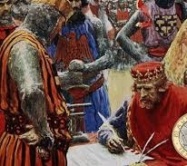
Once again, it is barons versus kings. And once again, we will accept a Magna Carta but should insist on a Bill of Rights. When it comes to Internet equality, we tend to be more concerned about that annoying buffering icon we got while playing Fortnite with friends. After June 11, we will believe it choked because our ISP gave the bandwidth to somebody with deeper pockets.
Of course, that assumes we have Internet access at all. If you need help with that, don’t call the king or barons today. They are busy playing an online Game of Thrones.
